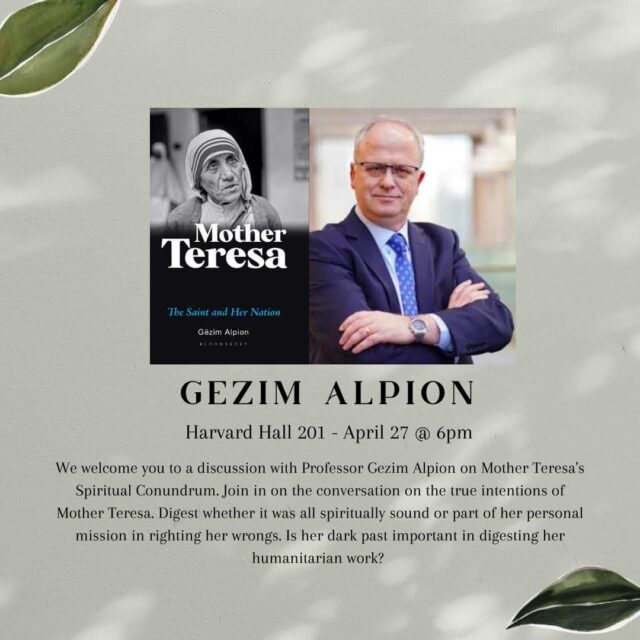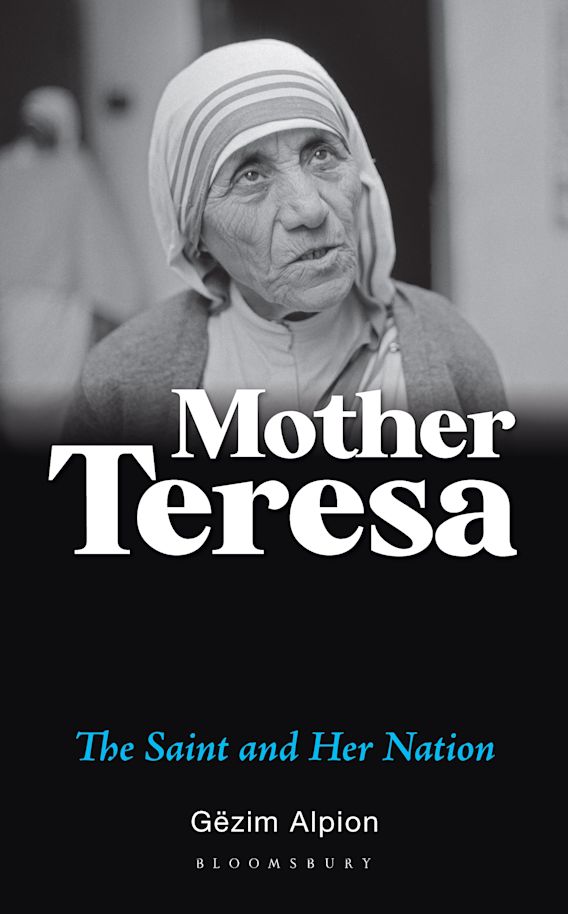The Birmingham-based professor of sociology brings a unique insight on the catholic saint’s complex personality which has left many perplexed and confused – the Albanian ethnic background is particularly investigated
Ruben Avxhiu
Dr. Gezim Alpion offers in his most recent book a unique insight on the education of Mother Teresa (St Theresa of Calcutta to the Roman Catholic Church) by exploring the long-lasting influence of the family, community, and Albanian background in which she grew up.
Born as Gonxhe Bojaxhi, to an Albanian catholic family in Skopje (Shkup), when it was still part of the Ottoman Empire, the future Mother Teresa left her birthplace early and received most of her formal religious education that prepared her for a life as a nun, elsewhere. Although, her connection to the Albanian roots remained strong, there was little display of it for the international media and the writings she left behind. Thus, scholars and authors of various fields missed or underappreciated this early missing link in her formation as a human being and as a spiritual person, which goes beyond her public religious persona.
Dr. Alpion, a professor of sociology in Birmingham University UK) since 2003, specializes in the sociology of success, religion, nationality, media, and authorship. No one is better equipped than him to explore the complexity the much adored but also debated, worldwide humanitarian, Nobel prize laureate, and catholic saint. He is himself Albanian by birth has a deep understanding of the cultural, historic, and ethnic context in which the early formation of Mother Teresa took place. Furthermore, he has already studied her from other perspectives. His first book on this subject (Mother Teresa, Saint or Celebrity) explores the process that catapulted the diminutive nun from Calcutta slums to world fame. Dr. Alpion is considered “the most authoritative English-language author’ on St Teresa of Calcutta and ‘the founder of Mother Teresa Studies,” to borrow a quote from the Birmingham University webpage on his profile.
A second book, Mother Teresa, the Saint and her Nation, was just published also in softcover by Bloomsbury (https://www.bloomsbury.com/uk/mother-teresa-9789354359644/)
Those in the United State, interested on the topic and a deeper look at the examining of ‘The Dark Night of the Soul’ phenomenon from a sociological perspective, which Dr. Alpion has been working for some time, had the chance of listening directly from him in person in his two lectures, delivered this month in Harvard University and in Georgetown University. A third lecture was reserved for the Albanian community in New York City.
The first lecture, “Mother Teresa: A Sociological Approach to Spiritual Inspiration and Discouragement” was hosted by the reputable Catholic Studies Program of the Georgetown University, on April 26th. Dr. Alpion spoke the next day at the Harvard Hall 201, at an event sponsored by Harvard Albanian Students Association. On April 30th, he was a guest speaker at Vatra Federation the oldest Albanian-American organization founded more than 110 years ago.
A personality of Mother Teresa’s calibre and global reach does not come about by chance. To provide a well-rounded portrait of this influential figure, this book approaches her in the context of her familial background and ethnic, cultural and spiritual milieus. Her life and work are explored in the light of newly discovered information about her family, the Albanian nation’s spiritual tradition before and after the advent of Christianity, and the impact of the Vatican and other influential powers on her people since the early Middle Ages.
Focusing on her traumas, ordeals and achievements as a private individual and a public missionary, and her complex spirituality, this book contends that Mother Teresa’s life and her nation’s history, especially her countrymen’s relationship with Roman Catholicism, are interconnected. Unravelling this interconnectedness is essential to understanding how this modern spiritual and humanitarian icon has come to epitomise her ancient nation’s cultural and spiritual DNA.

